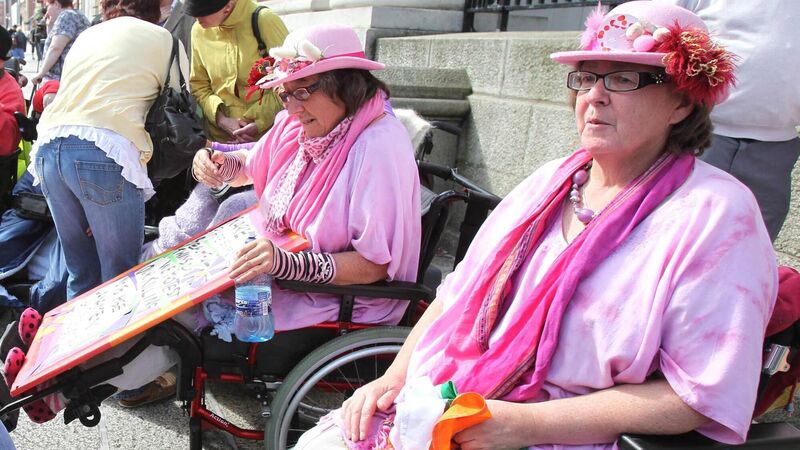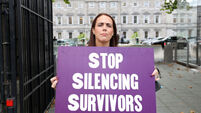Fergus Finlay: Three uncompromising women who delivered lasting change

Twin sisters and long-time campaigners Ann and Margaret Kennedy picketing Government Buildings about home help hours in 2012. Margaret has joined a select band of people honoured by the Church of England with a Langton Award for her work pursuing perpetrators of clerical abuse. Picture: Niall Carson/PA
Three remarkable women. I’ve known two of them for a couple of years, and one of them for a long time. They have a lot in common, in how they think and what they believe in. Each of them deserves a full biography.
I’ve believed all my life that the single most important characteristic in a politician is that you should know at a glance whose side they’ll be on in a battle. It can be the most challenging characteristic too — that’s why an awful lot of politicians spend as much time as possible trying to be on everyone’s side. Politicians of obvious conviction and clearly expressed values can have a harder time of it. They’re expected to trim and fudge if they want to get on.















